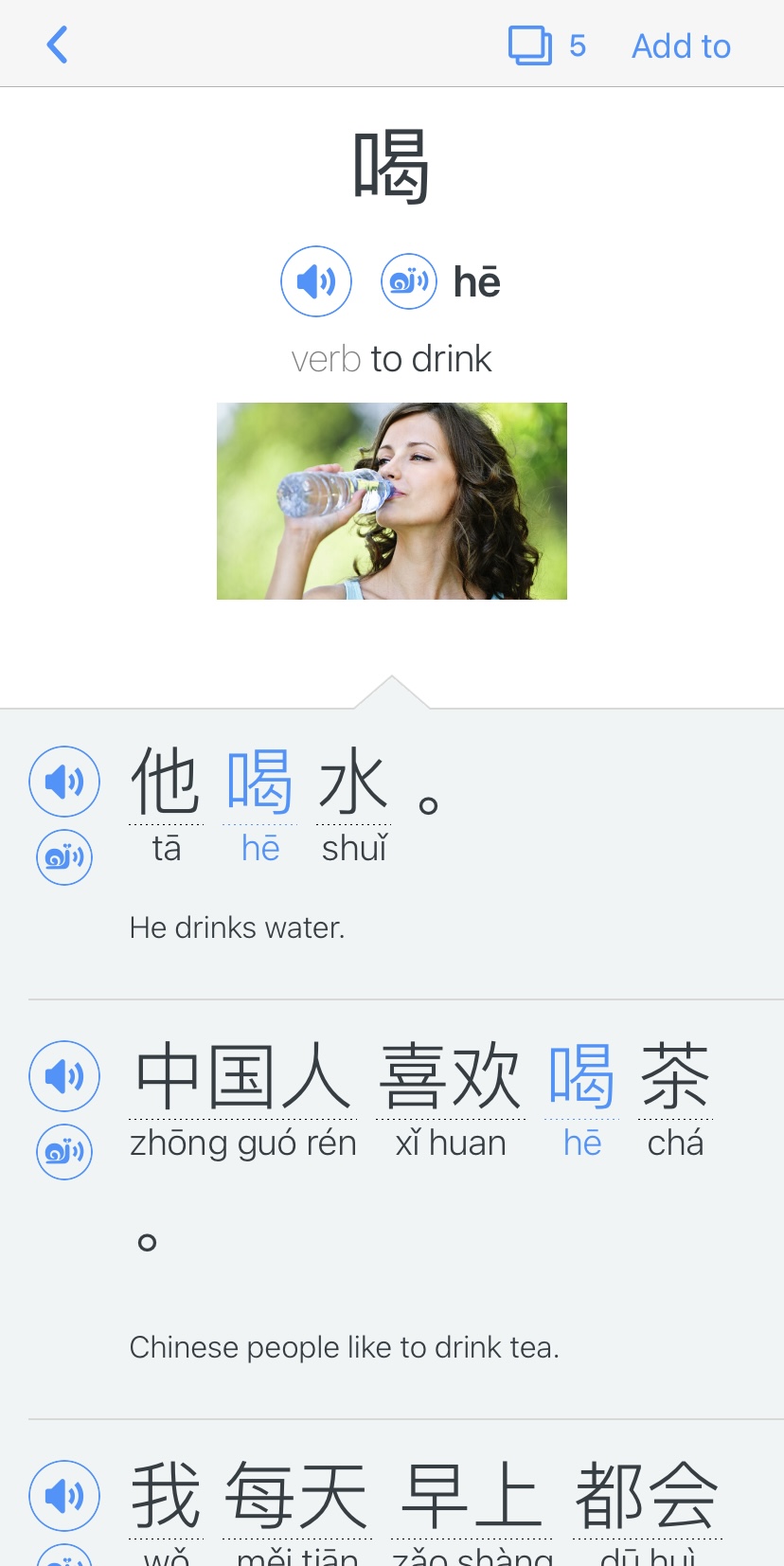How Long Does It Take to Learn Chinese? The Honest (and Surprising) Truth

Becoming fluent and highly proficient in Mandarin Chinese takes about 2,200 hours or four or more years. That will take you to HSK Level 6, which requires you to know around 5,000 characters.
In this post, we’ll discuss how long it takes to reach every Chinese level and six key factors that determine your timeline.
Download: This blog post is available as a convenient and portable PDF that you can take anywhere. Click here to get a copy. (Download)
The 5 FSI Levels of Learning Chinese
The Foreign Service Institute has classified Mandarin Chinese as a Category 5 language—meaning it’s one of the most difficult languages to learn alongside Cantonese, Korean, Japanese and Arabic.
They’ve also broken down Chinese proficiency into five categories:
| Proficiency Level | Description |
|---|---|
| Elementary Proficiency | You can form basic sentences, including asking and answering questions. |
| Limited Working Proficiency | You're able to communicate at a basic level in a work and social environment. This level includes "small talk." |
| Professional Working Proficiency | You can perform most work tasks in Chinese, including participating in meetings and communicating with clients, superiors and coworkers. Your vocabulary is extensive at this level, but you might still not catch every word or informal nuances. |
| Full Professional Proficiency | This is the level you'll likely need if you're working for a Chinese company or one that communicates regularly with Chinese-speaking clients and investors. At this level, you can carry out both professional and casual conversations with ease. |
| Native/Bilingual Proficiency | You did it! You're full-on fluent in Chinese! Congratulations! |
To get to the fifth (most advanced) level, the FSI estimates it takes around 2,200 hours of active learning (approximately 88 weeks).
Another way to determine how long it will take you to learn Chinese is to consider how many characters you need to know to pass each HSK level.
How Long It Takes to Learn Chinese (By Level)
HSK is the official Chinese proficiency exam and stands for 汉语水平考试 (hàn yǔ shuǐ píng kǎo shì).
There are nine levels total, but the last level is one exam that covers levels 7-9. So there are seven exams total. Level 1 is the lowest and Level 7-9 is the most advanced.
Each requires you to know a certain amount of characters.
Low Beginner (HSK 1) – 1 to 3 Months
HSK 1 is the most beginner level of Mandarin Chinese. To pass, you need to know 150 characters and some basic grammar points. This can take anywhere from one to three months.
You can expect to achieve the HSK 1 level in one month if you learn 4-5 characters a day for 31 days. Studying 2-3 characters daily will get you there in 60 days, and 1-2 characters will get you there in 90 days.
Beginner (HSK 2) – 3 to 6 Months
You need to know 300 characters total and learn some new basic grammar points to pass HSK 2. This usually takes three to six months.
Note that you’ll need to know 300 words total. This means you’ll be learning 150 new characters to add to the ones you learned in HSK 1.
Upper Beginner (HSK 3) – 6 to 9 Months
Reaching HSK Level 3 takes approximately six to nine months and requires you to know 600 words total. So you’ll be learning 300 new characters after you’ve achieved HSK 1 and 2.
Learning 3-4 new characters from the HSK 3 level will let you learn all 300 new words in about three months. However, remember that you’ll also be introduced to new, more challenging grammar concepts.
Low Intermediate (HSK 4) – About 2 Years
The HSK 4 has 1,200 words total, which means learning an additional 600 words after reaching HSK 3. The grammar points get more challenging and complex, and you should prioritize getting lots of speaking practice during this level to get comfortable expressing yourself.
Intermediate (HSK 5) – 3 to 4 Years
HSK 5 is as high as many learners choose to go. You’re usually considered very conversational at this level, knowing around 2,500 characters. You can expect to reach HSK level 5 after three to four years of consistent studying.
Upper Intermediate (HSK 6) – About 4+ Years
HSK 6 was the last level in the old HSK. But after the new HSK was introduced, it became the second to last—or, the upper intermediate level. HSK 6 has more technical vocabulary compared to the others, some of which you probably don’t use often in English. But if your goal is fluency, they’ll still be necessary.
It takes a minimum of four years of consistent study for most learners to reach, and you’ll need to know at least 5,000 characters.
Advanced (HSK 7-9) – About 5+ Years
HSK levels 7-9 are all considered “advanced” and there are no separate tests for these. Instead, you register for one exam—simply called the HSK 7-9—and your final score will tell you whether you scored a seven, eight or nine.
Someone with an HSK 7-9 level knows anywhere from over 5,000 to 11,000 words, depending on how advanced on the scale you are. So it’s harder to say how long this takes unless you’re aiming for a specific score, like an eight.
But since we know you have to learn over 5,000 characters—which would be HSK 6—we can estimate that it’ll likely take you over five years to reach levels 7-9.
Is Chinese Hard to Learn?
Chinese is considered one of the hardest languages for English speakers to learn, so yes, it’s hard. But it just requires time and patience. The hardest parts about Chinese are the amount of characters to memorize, the tone system and more advanced grammar structures.
But overall, learning Chinese doesn’t have to be as hard as most people think. You can check out this guide to figure out why:
Is Chinese Hard to Learn? 4 Reasons It’s Not as Difficult as You Think | FluentU Chinese Blog
Wondering “Is Chinese hard to learn?” Then you’re in the right place! Chinese is often considered the most difficult language for English learners to pick up. But in this…
How Many Characters Do You Need to Learn?
How many Chinese characters you need to learn depends on your goal. But generally, you need to know 1,200 to 5,000 characters to be able to communicate and read comfortably. Here’s an overview of the characters you need to know for each level:
| HSK Level | Characters Required to Know |
|---|---|
| HSK 1 | 150 |
| HSK 2 | 300 |
| HSK 3 | 600 |
| HSK 4 | 1,200 |
| HSK 5 | 2,500 |
| HSK 6 | 5,000 |
| HSK 7-9 | 11,092 |
How to Learn Chinese Faster
There are a few strategies you can use to speed up your Chinese progress and learn faster.
- Set daily or weekly time-based or task-based study goals. Break down your goal to figure out how much you need to accomplish each week, which can then be broken down into daily tasks. For example, if you want to reach HSK 3, you need to learn 600 characters. That means learning 10 words a day for two months (60 days). Or if you prefer time goals, figure out how much time you can realistically dedicate to learning Chinese a week and then break it down into daily amounts—such as 30 minutes a day for five days.
- Choose a language learning program. You should have a primary resource and then supplemental resources, like apps or websites that help you practice what you’ve learned or give you something extra to do when you have time.
- Immerse yourself in Chinese from the very beginning. As soon as possible, start listening to Chinese. But don’t listen or watch just anything. You should be getting content from native speakers, but at the appropriate level. This can be hard to do on your own online because most native-speaker content is obviously meant for already fluent speakers. So I recommend using a program like FluentU, which uses interactive subtitles and categorizes videos according to level.
FluentU takes authentic videos—like music videos, movie trailers, news and inspiring talks—and turns them into personalized language learning lessons.
You can try FluentU for free for 2 weeks. Check out the website or download the iOS app or Android app.
P.S. Click here to take advantage of our current sale! (Expires at the end of this month.)
You can also use the FluentU Chinese YouTube channel. Take this video, for example. It’s a Chinese-dubbed episode of SpongeBob, and the host breaks it down to turn it into a meaningful, vocabulary- and grammar-packed lesson.
- Use flashcards to study new words. Preferably, use a flashcard app that has a spaced repetition algorithm like Anki. (Here’s a full guide on how to use Anki for learning a language.)
- Talk to native speakers. This isn’t something you have to (or really should do) right away, since you’ll have an extremely limited vocabulary and will most likely get frustrated at your lack of ability to communicate. But once you reach a conversational level—such as HSK level 3—it’s important to start connecting with native speakers and shifting your focus from input to output (using the language). Luckily, this is easy to do with language exchange apps like HelloTalk and Tandem.
For more tips, I recommend checking out this full guide:
How to Learn Chinese Faster: 8 Tips for Efficient Studying | FluentU Chinese Blog
Want to know how to learn Chinese faster? These eight tips will have you learning Chinese more efficiently than ever before. Whether it’s setting good goals or using…
I also came across this really inspiring video on YouTube. The creator—Dr. Izzy Sealey—reached an HSK 4 level in just six months and shares her strategies, resources, etc. in this video:
6 Factors that Determine How Long It Will Take You to Learn Chinese
1. Your Time Commitment Each Day
While you don’t necessarily need to spend 10 hours a day for 72 days, if you want to achieve a conversational level without taking a decade, you should at least put in 30 minutes to an hour daily.
Putting in this amount of time is also the most beneficial for long-term memory.
When memorizing large amounts of information over an extended period of time, you risk everything you learned being put into your short-term memory.
In other words, it’s easier and more effective to learn in smaller chunks of content and time.
Whether you have hours a day to spare or not, the biggest takeaway from this factor is that you incorporate Chinese learning, studying and practicing into your daily life.
2. The Quality of Your Learning Resources
Believe it or not, the obstacle in your path to faster fluency could very well be the resources you’re using.
It’s crucial that your primary resources be very high quality.
What does this look like exactly?
Your resources should be:
- Full of practical lessons
- Easy to use
- Fun and exciting
- Challenging
- Diverse in content and practice material
- Modern and relevant
Here’s a roundup of some of the best free Chinese learning resources:
13 Best Free Resources to Learn Chinese Online in 2025 | FluentU Chinese Blog
On a budget and looking to learn Chinese online for free? Click here to get 13 free resources to learn Chinese without spending a dime, like top YouTube channels, the best…
3. How Motivated You Are (and Stay)
The more excited you are to learn, the more you’ll learn, which means the faster you’ll see progress.
It’s easy to be a motivated go-getter in the early stages of learning, but eventually, you might find that your steam has run out. This is especially true if you take on too much in the beginning (like studying for 10 hours a day).
No matter what level you are, every learner has their good and bad days. And no one is immune to becoming unmotivated and falling into a plateau.
But the good news is there are ways to prevent it (and combat it).
My favorite way is to constantly immerse myself in Chinese media.
I love browsing the internet for Chinese YouTube videos, listening to Chinese music while I go for a run and chatting with my language partner (who’s now one of my best friends).
4. Previous Language Learning Experience
Let’s face it—if Chinese is the first language you’ve ever tried to learn, it’ll likely be harder for you than someone who has learned a second or third language.
Someone who has experience with language learning will likely know their preferred way of learning, studying and practicing. Plus, already have some favorite resources.
As a beginner, you’re probably wondering:
- How much should I spend on resources?
- What does a good language routine look like?
- How do I even start learning?
It can take a while to get into the swing of things and find out what works best for you. So, don’t worry if you don’t sort all of that out right away! You’re not alone.
But don’t get discouraged if you’re a beginner, and don’t rush the process.
We all want to see progress fast, but rushing it will only demotivate you and cause you to overlook important first steps.
5. Your Organization and Chinese Learning Routine
Speaking of routines, let’s dive a little deeper here.
How well you organize and measure your progress—as well as abiding by a consistent routine—will play a critical role in your learning journey.
This can be as simple as keeping flashcards in one place, marking off a checklist or keeping a diary of what you do each day (my personal favorite).
Something important to note is that your learning routine will always be subject to change—and that’s okay!
As you approach new phases of life, reach new levels, face a potential learning plateau and finish resources and courses, your routine will need to adapt.
Rather than bringing yourself to the routine, bring the routine to you.
6. Whether You Learn Characters or Not
Did you know it’s totally possible to learn Chinese without learning characters?
Not only will it save you some materials, notebooks and possibly a few headaches, but it’ll also save you time.
This is something I did for a long time.
Especially if you’re a beginner, mastering pronunciation, pinyin, vocabulary and grammar should take priority over learning how to write (at least for the moment).
If your goal is to communicate verbally, writing doesn’t need to be a top priority right now.
I’m not dissing characters, though. They’re fun to learn and are simply part of the language. But you have to be okay with the time it adds to your routine and pace.
Congratulations! You’re now fully equipped with the information necessary for answering the question, “How long will it take me to learn Chinese?”
While there’s no magic number, if you consider these factors, I know you can come up with a solid action plan.
Download: This blog post is available as a convenient and portable PDF that you can take anywhere. Click here to get a copy. (Download)
And One More Thing…
If you’re like me and prefer learning Chinese on your own time, from the comfort of your smart device, I’ve got something you’ll love.
With FluentU’s Chrome Extension, you can turn any YouTube or Netflix video with subtitles into an interactive language lesson. That means you can learn from real-world content, just as native Chinese speakers actually speak.
You can even import your favorite YouTube videos into your FluentU account. If you’re not sure where to start, check out our curated library of videos that are handpicked for beginners and intermediate learners, as you can see here:
FluentU brings native Chinese videos within reach. With interactive captions, you can tap on any word to see an image, definition, pronunciation, and useful examples.
You can even see other videos where the word is used in different contexts and add new words to your flaschards. For example, if I tap on the word 喝 (hē), this is what pops up:
Want to make sure you really remember what you've learned? We’ve got you covered. Practice and reinforce the vocab from each video with learn mode. Swipe to see more examples of the word you’re learning, and play mini-games with our dynamic flashcards.
The best part? FluentU tracks everything you’re learning and uses that to create a personalized experience just for you. You’ll get extra practice with tricky words and even be reminded when it’s time to review—so nothing slips through the cracks.
Start using the FluentU website on your computer or tablet or, better yet, download our app from the App Store or Google Play.
Click here to take advantage of our current sale! (Expires at the end of this month.)












